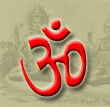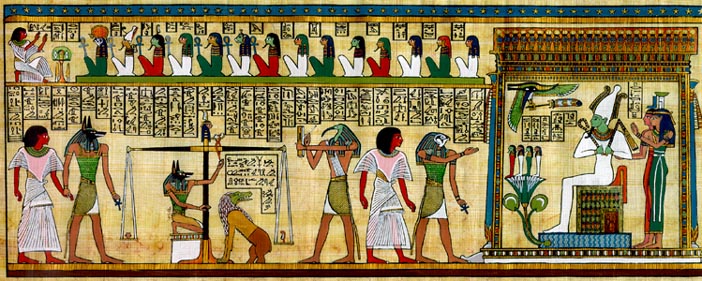Afterlife......
From Wikipedia, the free encyclopedia.
- This article is about life after death. For the Japanese movie, see After life.
Afterlife (also known as life after death) is a generic term referring to a continuation of existence, typically spiritual and experiential, beyond this world, or after death. This article is about current generic and widely held or reported concepts of afterlife. See Underworld for a comprehensive catalog of specific traditions about afterlife.
| Contents [showhide] |
Afterlife as a belief
In the popular mind, afterlife is a belief. It is generally thought to be a non-verifiable (and non-falsifiable) belief because it is generally accepted as beyond the experiential knowledge or casual accessibility of most people (see esoteric knowledge). As a result, the popular mind relies on various sources for concepts about afterlife, arranged below in presumed order of reliability:
- Testimony of individuals who claim experiential knowledge of
facets of afterlife
- by having died and then been sent back to this life (near-death experiences)
- by having visited the afterlife during a period of unconsciousness (out-of-body experiences)
- by having seen the afterlife during a revelatory vision
- by a unique personal gift of remembering an afterlife (before-life) existence
- Testimony of individuals who are presumed to have special
insights into the afterlife
- holy ones
- miracle workers
- spectacular converts
- Claimed testimony of visitors from the afterlife
- God
- Angels
- Spirits
- Human intuitions of goodness assumed to emanate from the afterlife
- Speculation and extrapolation
- Concoction
While there is information available from all of the above sources, a preponderance of concoctions, speculations, and extrapolations have arguably historically characterized formal descriptions of afterlife. Religious traditions have historically formalized and codified ideas about afterlife in widely divergent forms. Though the onset of the information age is bringing to light increasing consistency and uniformity of beliefs about afterlife from across and without religious boundaries, most afterlife conceptions continue to follow traditional descriptions, often viewed as rationally weak by skeptics who -- particularly atheists and agnostics of a secular humanist mindset -- hold that we entirely cease to exist.
For those who do believe in an afterlife, the various conceptions about it differ in their answer to the following questions:
- Is the afterlife a normal life, or a different type of existence?
- Are afterlife conditions a consequence of good and bad actions during life?
- Is afterlife eternal?
- Is it possible to reincarnate as a human, or as an animal/plant/mineral?
- What happens at the moment of death?
- Are ghosts and other undead a proof of an afterlife?
Afterlife as an individual existence
For an afterlife to exist, there must be something that survives the body when death occurs. No such thing has ever been detected, but believers in an afterlife assume the existence of an massless, volumeless thing called a soul or spirit, posited to be the seat of conciousness.
Afterlife as reward or punishment
One notion of afterlife which is common to Judaism, most Christianity, and Islam is that human souls go on for eternity to a place of happiness or torment, such as heaven, hell, or purgatory or limbo.
Many religions hold that after death people get reward or punishment based on their deeds or faith
The Christian Bible, for example, contains the words of Jesus: "The measure you give will be the measure you get." (from the Sermon on the Mount?). For many, belief in an afterlife is a consolation in connection with death of a beloved one or the prospect of one's own death. On the other hand, fear of hell etc. may make death worse.
In the informal folk beliefs of many Christians, the souls of virtuous people ascend to Heaven and are converted into angels upon their deaths. However, a more orthodox reading of scripture suggests that the dead wait until the Last Judgment, which is followed by resurrection for the faithful.
In view of the eternity of afterlife, some consider regular life as relatively unimportant, except for determining whether or not afterlife follows, and/or what kind. It is just a provisional situation, and the metaphor of a tent as provisional housing facility is used as quoted below:
- For we know that if our earthly house of this tabernacle were dissolved, we have a building of God, a house not made with hands, eternal in the heavens.(Bible, 2 Corinthians 5:1)
In what we know of Egyptian religion, afterlife is very important. The believer had to act well and know the rituals explained in the Egyptian Book of the Dead. If the corpse was properly embalmed and entombed in a mastaba, the defunct would relive in the Fields of Yalu and accompany the Sun god on its daily ride. If, during the psychomachia, the souls of the defunct was found faulty, the Devourer monster would eat them.
Others, including some Universalists, believe in universalism which holds that all will eventually be rewarded regardless of what they have done or believed.
Life after death is however in no way an universal believe, for example, some christians don't believe in an afterlife based on (among other) Ecclesiastes 9:5:
- For the living know that they shall die: but the dead know not any thing, neither have they any more a reward;for the memory of them is forgotten.
They tend to believe in a resurrection in the flesh at some future date as a reward and death (not being) as punishment.
Afterlife as reincarnation
Another afterlife concept which is found among Hindus and Buddhists is reincarnation, whether as humans or as animals. One consequence of the Hindu and Buddhist beliefs is that our current lives are also an afterlife, and both Hindus and Buddhists interpret events in our current life as being consequences of actions taken in previous lives. Although there is some scientific research that seems to suggest that humans may reincarnate as humans (see, for example, the writings of Dr. Ian Stevenson and Carol Bowman), there is very little (if any) evidence to suggest that humans reincarnate as animals, or vise-versa.
Some Neopagans believe in personal reincarnation, whereas some believe that the energy of one's soul reintegrates with a continuum of such energy which is recycled into other living things as they are born.
Some Christians believe in reincarnation [1] (http://a1.nu/christian/reincarnation.htm), although it is against the teachings of the vast number of ancient Christians texts.
Related studies
The study of views of the afterlife is a concern of Eschatology, which deals with the soul, the resurrection of the dead, the messianic era, and the end of the world.
The question of whether or not there is life after death is closely related to the mind-body problem, and like that problem is one of the classic problems of so-called rational psychology and hence of one (now largely outdated) notion of the scope of metaphysics.
Quotes
"For Man to attempt comprehension of the afterlife, is as the tadpole attempting to understand the frog." (Jesuit Text)
See also
- Animism
- Death
- Doomsday
- Eschatology
- Eternity
- Ghosts
- Heaven
- Hell
- Immortality
- Near-death experience
- Out-of-body experience
- Pre-Birth communication
- Salvation
- Soul
- Superstition
- Reincarnation
- Undead
External links
- Dictionary of the History of Ideas: Death and Immortality (http://etext.lib.virginia.edu/cgi-local/DHI/dhi.cgi?id=dv1-76)
- Truth Journal: The Case for Life After Death (http://www.leaderu.com/truth/1truth28.html)
- Soul-searching doctors find life after death (http://news.telegraph.co.uk/news/main.jhtml?xml=%2Fnews%2F2000%2F10%2F22%2Fnsoul22.xml)
- Frederic Myers - Proof of Life After Death (http://www.trans4mind.com/spiritual/myers1.html)
- Near-Death Experience Research Foundation (NDERF) (http://www.nderf.org/)
- Near-Death Experiences and the Afterlife (http://www.near-death.com/)
- Children's Past Lives Research Center (http://www.childpastlives.org/)
- Dr. Ian Stevenson Articles and Cases (http://www.childpastlives.org/stevenson_articles.htm)
- Egyptian belief in the Afterlife (http://www.crystalinks.com/egyptafterlife.html)
- A Lawyer's Case for the Afterlife (http://www.victorzammit.com/)
- Rebirth, the Master Key (http://www.rosicrucian.com/zineen/rebirth.htm), The Science of Death (http://www.rosicrucian.com/zineen/death2.htm), The Riddle of Life and Death (http://www.rosicrucian.com/zineen/death3.htm) and Where are the Dead? (http://www.rosicrucian.com/zineen/death4.htm)
- The Cycle of Life (http://www.zyworld.com/jamus/LifeCycle.htm)
Anti-Afterlife
- An Atheist View on Death (http://www.positiveatheism.org/mail/eml8611.htm)
- Another Atheist View on Death (http://www.positiveatheism.org/mail/eml9666.htm)




